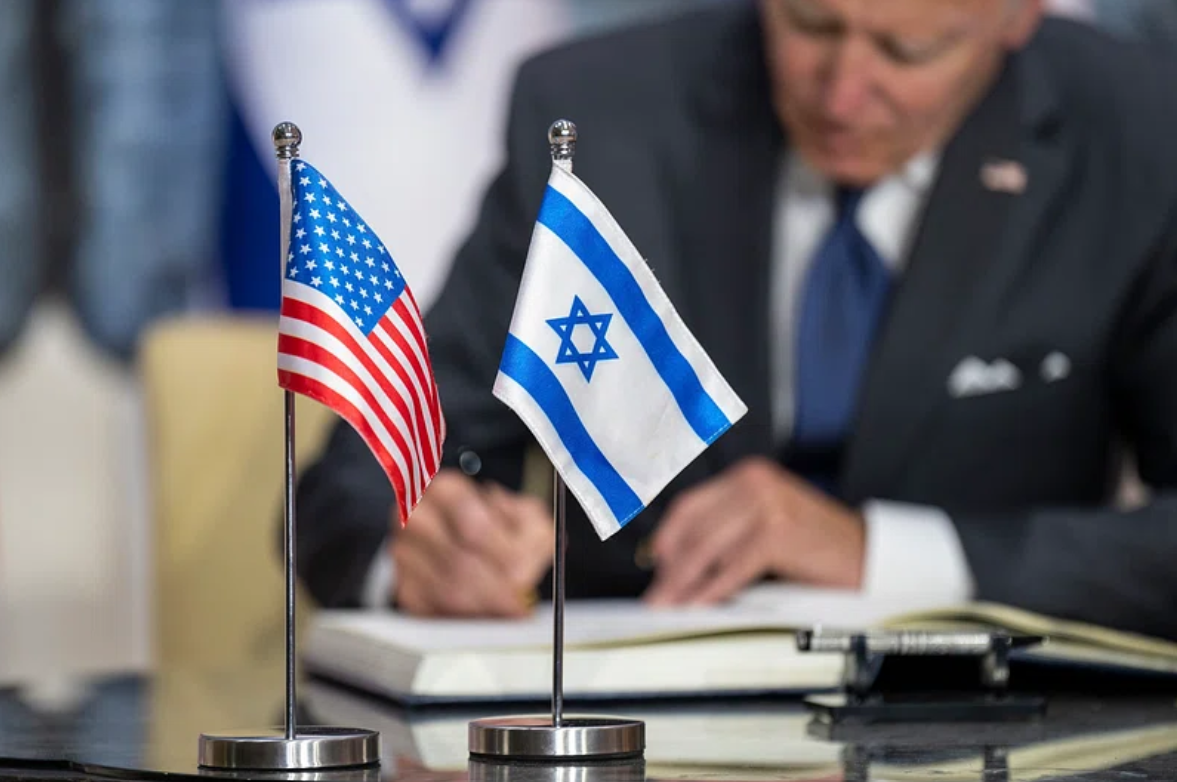On Friday, March 29, the Washington Post reported that the Biden administration had signed off on a new arms package to Israel that includes “1,800 MK-84 2,000-pound bombs and 500 MK-82 500-pound bombs, along with 25 F-35s.” The delivery is expected to be completed in the coming months.
This development comes at the heels of Israeli Prime Minister Benjamin Netanyahu’s temporary cancellation of a high-level Israeli delegation’s trip to Washington after the U.S. abstained from a UN ceasefire resolution vote. However, Israel shortly after sought a new date to engage with Washington.
Regional sources report on U.S.-Israel relations amid the Gaza war:
On Friday, the U.S. authorized the transfer of “billions of dollars worth of bombs and fighter jets to Israel even as it publicly expresses concerns about an anticipated military offensive in Rafah,” according to Al-Arabiya. Despite criticism over a potential operation in Rafah, where over a million forcibly displaced Palestinians have been driven seeking safety, a White House official asserted: “We have continued to support Israel’s right to defend itself. Conditioning aid has not been our policy.”
Arab News noted that this authorization follows “a visit to Washington by Israeli Defense Minister Yoav Gallant [last] week when he discussed Israel’s weapons needs with US counterparts.” Gallant told reporters that he “stressed the importance of US ties to his country’s security and of maintaining Israel’s ‘qualitative military edge’ in the region, including its air capabilities.”
The Jerusalem Post clarified that Washington did not approve all weaponry that Israel had requested. The news source quoted Chairman of the U.S. Joint Chiefs of Staff General Charles Brown: “Although we’ve been supporting them with capability, they’ve not received everything they’ve asked for… Some of that is because they’ve asked for stuff that we either don’t have the capacity to provide or are not willing to provide, not right now.” Despite this, “in a not-so-veiled statement balancing Brown’s public statement, top Washington officials leaked… a reminder of a list of ongoing weapons sales that the US has approved for the future and that are still going forward.”
While discussing the U.S. arms package, Netanyahu stated, “We need to be much more independent in the production capacity of the weapons we need.” Andalou Ajansi shared that the Israeli Prime Minister elaborated that Israel must adapt “to be immune from external pressures because we need to make our own decisions.”
Al Jazeera, days later, reported that the Biden administration is also “weighing whether to go ahead with an $18bn arms transfer package to Israel that would include dozens of F-15 aircraft… The sale of 25 F-15s has been under review since the US received the formal request in January 2023.” However, “Biden faces pressure from foreign partners, human rights groups and some of his fellow Democrats in Congress to impose conditions on arms transfers to rein in Israel’s offensive in Gaza where health officials say at least 32,845 Palestinians have been killed, many of them civilians.” If approved, the aircraft would not be expected to be delivered to Israel until 2029.
On Monday, April 2, “top Israeli and US officials held a virtual meeting Monday to discuss a potential Israeli offensive in the southern Gaza city of Rafah,” according to the Times of Israel. This engagement “was supposed to have been held in person last week but was delayed after Prime Minister Benjamin Netanyahu refused to send his top aides to Washington in protest of the US decision to allow the passing of a UN Security Council resolution that called for a temporary ceasefire and hostage release without explicitly conditioning the former on the latter.”
The New Arab outlines how the issue of Rafah “has exacerbated an already tense relationship between Biden and Israeli Prime Minister Benjamin Netanyahu over the Gaza war.” Rafah reflects “the last major urban centre in the enclave yet to be stormed by Israeli forces, although it has been hit by deadly airstrikes. More than a million Palestinians are seeking refuge there, displaced by Israel’s savage bombardment of the Gaza Strip [that has] killed over 32,000 people so far. An Israeli ground assault is likely to cause a humanitarian catastrophe and thousands more casualties.”
